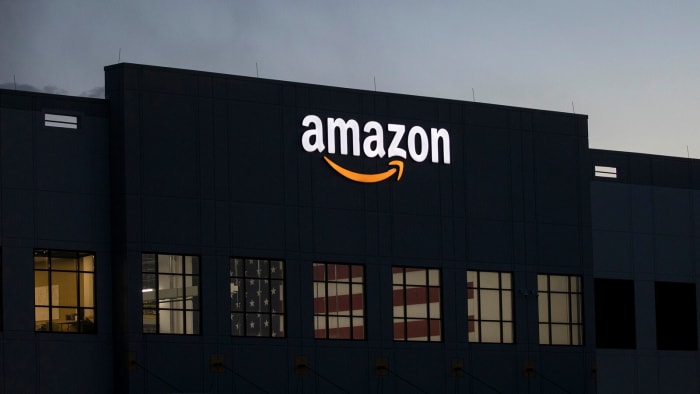Amazon (AMZN) – Get Amazon.com, Inc. Report has multiple revenue streams – the Seattle-based behemoth provides everything from from e-commerce to cloud services to video streaming to advertising to logistics to satellite broadcasting and more. However, there are also revenue sources that flow indirectly to Amazon’s income statement. These are much harder to track and, therefore, are often overlooked by investors.
Research performed by Bridgewater Associates — a hedge fund that belongs to the legendary portfolio manager Ray Dalio — has shown that big tech companies, such as Amazon, Apple, Alphabet, Microsoft, and Meta, benefit greatly from investments made into early-stage companies.
The bad news is that the current inflationary environment will probably cripple that market for years to come. Here is our take on the matter.

Figure 1: Amazon: How a Deceleration in the Venture Capital Market Could Affect the Company
Dave Sanders for The New York Times
Read more from Amazon Maven: 2 Reasons to Buy Amazon Stock on the Dip
When the venture capital industry is doing well, big tech firms’ performance tends to follow. That’s because companies such as Amazon, Apple, Alphabet, Microsoft, and Meta effectively absorb a large portion of the investments made into technology startups. Startups usually spend considerable amounts on cloud computing, marketing, and other services provided by the abovementioned tech giants.
According to Bridgewater’s report, of all the money invested in early-stage companies, 20% is spent on cloud services — where the near-triopoly of Amazon, Microsoft, and Alphabet rule. Another 40% flows to marketing companies, a realm dominated by Alphabet, Meta, and Amazon.
Indeed, Bridgewater estimates that nearly 10% of the total revenue for Alphabet, Amazon, and Meta – a staggering $84 billion annually – comes from the venture capital ecosystem. In sum, the search for “the next big thing” benefits current big tech.
Pandemic Monetary Injection
The good news for Amazon shareholders is (or was) that the venture capital industry had its best year in 2020. This was in large part thanks to the Fed’s “easy money” monetary policy throughout the Covid crisis. According to Reuters, venture capital-backed companies in the US raised nearly $130 billion through that period.
For perspective, total venture capital investment went 14% up from 2019 to 2020 — despite the number of individual deals actually decreasing 9%, down to 6,022. Mega-rounds (deals that reach the sum of $100 million or higher), on the other hand, hit their record in 2020.
“What we’re seeing is a ‘rich get richer’ phenomenon where successful, high momentum technology companies are vacuuming up most of the financing,” said Anand Sanwal, chief executive of data firm CB Insights, in an interview with Reuters.
It’s become clear, though, that in 2020, there was more money available to invest than good startup firms to invest in. As venture capitalists inflated startup’s valuations, a sizable portion of their investments ended up flowing to Amazon and other big tech companies.
Much Cloudier Skies Ahead
2020 might have been a sunny and happy year for the high-risk investment firms, but the current inflationary environment is hammering overvalued companies.
As higher interest rates make money more expensive, investors are less willing to commit their money to riskier companies. For Amazon shareholders, this might ultimately translate into a lower-than-expected growth for the company’s cloud and advertising segments.
(Disclaimers: this is not investment advice. The author may be long one or more stocks mentioned in this report. Also, the article may contain affiliate links. These partnerships do not influence editorial content. Thanks for supporting Amazon Maven)
Credit: Source link


Comments are closed.